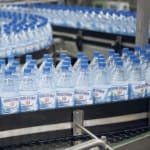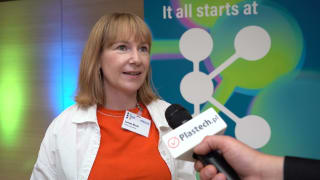 Water, beer, juices, coke and other beverages are sold in a variety of packaging systems in Germany: reusable glass or plastic bottles, cardboard cartons, single-use containers with a deposit or single-use packaging with the Green Dot.
Water, beer, juices, coke and other beverages are sold in a variety of packaging systems in Germany: reusable glass or plastic bottles, cardboard cartons, single-use containers with a deposit or single-use packaging with the Green Dot.Especially up and coming are single-use PET bottles – at the expense of reusable systems. According to information from the Federal Ministry of the Environment, the percentage of reusable bottles was recently as low as 49.2 %. In 2009 single-use plastic bottles were the most frequently used means of packaging at 46.3 %.
Over the years reusable glass bottles (34.2 %) and reusable plastic bottles (15.0) have lost ground; likewise beverage cartons (2.4), beverage cans (1.3) and single-use glass bottles were less in demand. “Consumers choosing drinks at supermarkets or from beverage retailers not only opt for a particular drink but also always for its packaging,” says Michael Brandl, CEO of FKN Fachverband Kartonverpackungen für flüssige Nahrungsmittel e.V. (the Association for Carton Packaging for Liquid Foods).
Furthermore, consumers also always make a conscious decision for or against deposit schemes: Since May 2006 Germany has enjoyed a consistent deposit scheme. Since then retailers have been obliged to also accept beverage packaging empties for beverages they have not sold themselves provided they sell that particular packaging material. Beverage cartons, stand-up pouches and tubular bags are considered ecologically advantageous and are therefore freed from deposits. Some beverages are freed from deposits regardless of their packaging such as milk, fruit and vegetable juices, diet drinks, wines and spirits.

The traditional returnable deposit is charged by retailers themselves while not being mandatory. Beer bottles (0.33l or 0.5l) come with a deposit of 8 cents, beer bottles with clasp tops with 15 cents. There are also returnable bottles for mineral water, soda, yoghurt, milk, cream or fruit juices made of glass or more rigid plastics (all with 15 cent deposit). Some but not all bottles bear the circular reusable logo. And even the bottles without this symbol bear the information "reusable" or "returnable bottle". The latter are refilled several times: on average PET bottles are filled approximately 15 times, glass bottles about 50 times. Some of them also bear the Blue Angel symbol for reusable bottles.
The deposit for non-refillable containers has been in force since 1 January 2003 for beer, mineral water and carbonised refreshment drinks. These returnable bottles can be identified by their DPG logo (Deutsche Pfandsystem GmbH) and come with a 25 cent deposit. Most of the time they are made of PET and are shredded after collection. The PET is recycled and part of it used for manufacturing new bottles. There is another logo, the PET Cycle which stands for a mixture of non and refillable packaging. While the crates are reused the PET bottles are ground after being returned.


